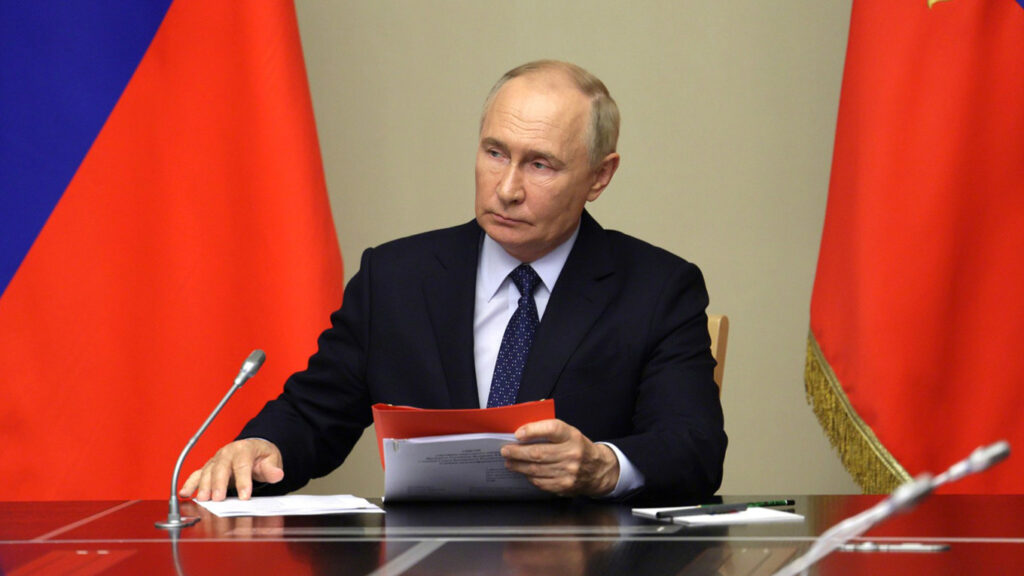Russian President Vladimir Putin is set to chair a crucial meeting of Russia’s Security Council on Wednesday, focusing on nuclear deterrence amid escalating tensions with Ukraine and the West. The meeting comes as Moscow weighs its response to Ukraine’s requests for U.S. permission to strike deep into Russian territory using long-range Western missiles.
Kremlin spokesman Dmitry Peskov emphasized the significance of the event, stating that Putin will deliver a speech, with the remainder of the proceedings classified as “top secret.” The Security Council, comprising Putin’s most influential officials including prominent hawks, is seen as a modern-day politburo in Russian politics.

This high-level gathering occurs against the backdrop of the 2-1/2-year-old Ukraine war, which has triggered the most severe confrontation between Russia and the West since the 1962 Cuban Missile Crisis. Putin, as the primary decision-maker on Russia’s vast nuclear arsenal, is contemplating potential responses if the United States and its European allies permit Ukraine to use Western-supplied missiles for deep strikes into Russian territory.
On September 12, Putin warned that such permission would effectively mean direct Western involvement in the conflict with Russia, potentially forcing Moscow to make “appropriate decisions.”
Ukrainian President Volodymyr Zelenskiy has been persistently urging Kyiv’s allies to allow the use of Western missiles, including long-range U.S. ATACMS and British Storm Shadows, to strike deep within Russian territory. Zelenskiy argues this capability is necessary to limit Moscow’s ability to launch attacks.
The meeting also comes as Russia advances its position in eastern Ukraine, controlling nearly a fifth of the country. Western leaders, including U.S. President Joe Biden, have stated that Putin must not be allowed to win the war.
In response to Zelenskiy’s recent statement at the UN Security Council that Russia must be forced into peace, Peskov called it a “fatal mistake” and a “profound misconception,” asserting that it is impossible to force Russia into peace.
As the conflict enters what Russian officials describe as its most dangerous phase to date, concerns are growing about the potential for further escalation. Putin has previously warned that the United States risks triggering a global war over Ukraine.
The meeting is expected to address Russia’s ongoing revision of its nuclear doctrine, which outlines the circumstances under which it might resort to using nuclear weapons. Additionally, discussions may touch on the future of arms control treaties, as the post-Soviet global consensus continues to erode.
With the New START Treaty set to expire in 2026, the Kremlin has indicated that any discussions about a replacement would need to consider European nuclear capabilities, referring to the arsenals of Britain and France.



